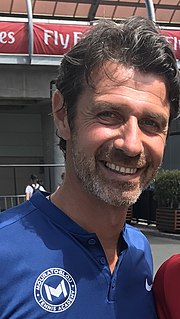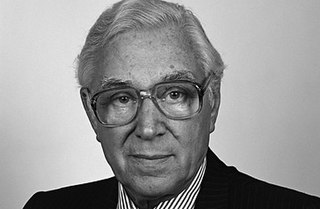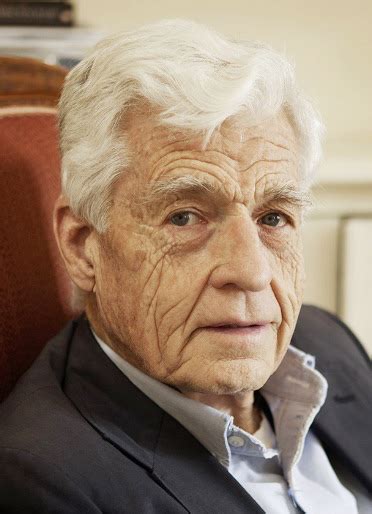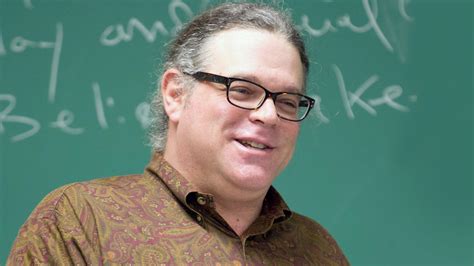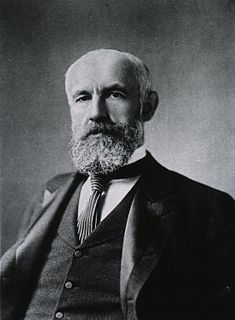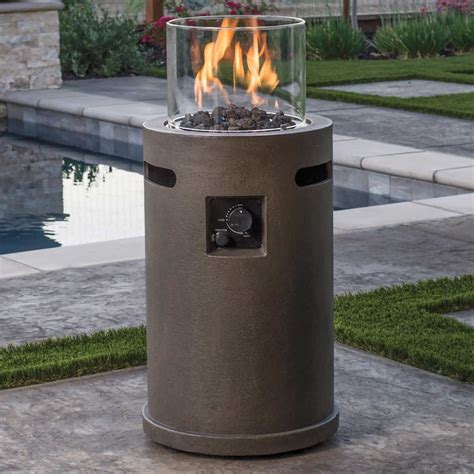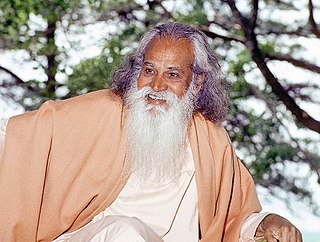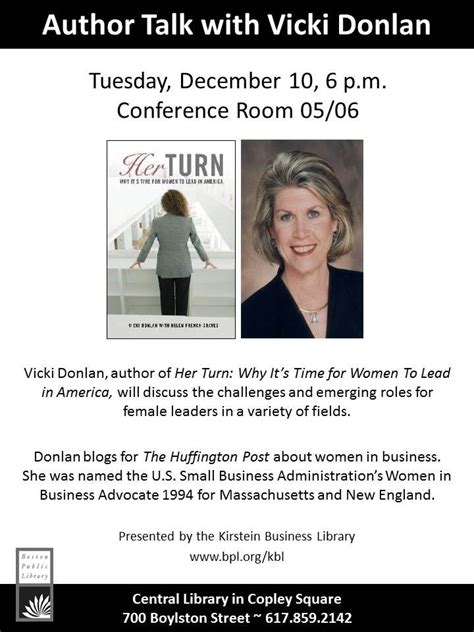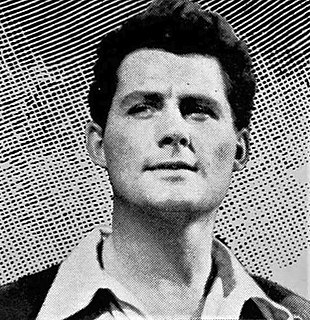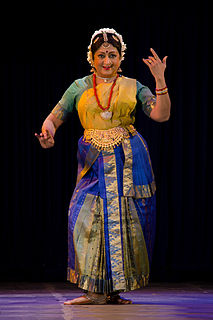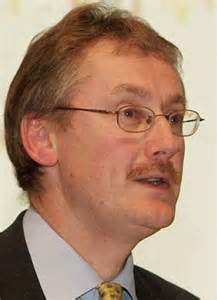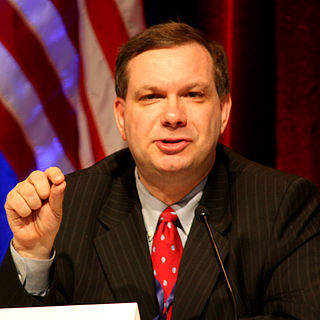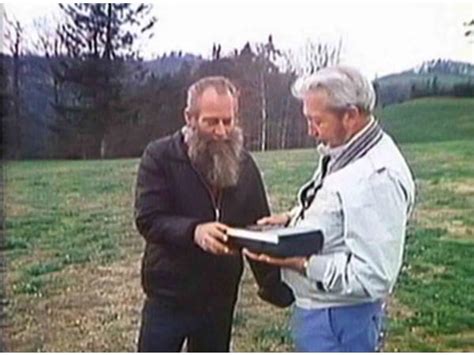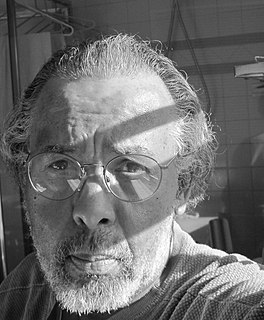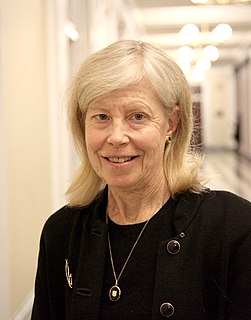Top 1068 Ethical Quotes & Sayings - Page 16
Explore popular Ethical quotes.
Last updated on April 22, 2025.
Using the phrase business ethics might imply that the ethical rules and expectations are somehow different in business than in other contexts. There really is no such thing as business ethics. There is just ethics and the challenge for people in business and every other walk in life to acknowledge and live up to basic moral principles like honesty, respect, responsibility, fairness and caring.
Western liberal humanism is not something that comes naturally to us: like an appreciation of art or poetry, it has to be cultivated. Humanism is itself a religion without God-not all religions, of course, are theistic. Our ethical secular ideal has it's own disciplines of mind and heart and gives people the means of finding faith in the ultimate meaning of human life that were once provided by the more conventional religions.
If I pick up a book with spaceships on the cover, I want spaceships. If I see one with dragons, I want there to be dragons inside the book. Proper labeling. Ethical labeling. I don't want to open up my cornflakes and find that they're full of pebbles... You need to respect the reader enough not to call it something it isn't.
If we empower ourselves with responsibility over our actions, responsibility over our destinies and responsibility for directing and maintaining and creating our own ethical and moral frameworks, which is the most important thing really isn’t it because perhaps the greatest insult to humanism is this idea that mankind needs a god in order to have a moral framework.
When, in any ethical department, unity is attained between outer demands and inner desires, between nature and conscience, between the needs of society and the individual, the moral formula is void because inner necessity then makes it psychically and physically impossible to break the outer law. Thus, true morality is attained.
Who are the governing bodies to say what is a good and a bad behaviour? I think that's unacceptable, even from an ethical point of view. I don't think anyone on this planet should be able to point at people and say this. For example, if it's not dangerous for other people, you should be allowed to break a racket. It's my racket, it's my problem.
One of the interesting things about the ancient Greeks is that they really didn't have our conception of individual rights. They didn't have our conception of all lives matters. And it was really was true for them, that certain lives matter a lot more than others. It didn't dawn on them that all lives, although different, can be lives of equal mattering. And that is actually something a huge ethical lesson.
We find ourselves ethically destitute just when, for the first time, we are faced with ultimacy, the irreversible closing down of the earth's functioning in its major life systems. Our ethical traditions know how to deal with suicide, homicide and even genocide, but these traditions collapse entirely when confronted with biocide, the killing of the life systems of the earth, and geocide, the devastation of the earth itself.
Reality is much more complex than any judgment of right and wrong encourages you to believe. When you really understand the ethical, spiritual, social, economic, and psychological forces that shape individuals, you will see that people's choices are not based on a desire to hurt. Instead, they are in accord with what they know and what world views are available to them. Most are doing the best they can, given what information they've received and what problems they are facing.
It [an ethical problem with in vitro fertilization] depends on whether you're talking ethics from the standpoint of some religious denomination or from just truly religious people. The Jewish or Catholic faiths, for example, have their own rules. But just religious people, who will make very devoted parents, have no problem with in vitro fertilization.
But though Usury is in itself immoral, and justly condemned by every ethical code, its chief and worst defect in the particular case we are now examining, the growth of Capitalism and its increasing proletariat, is the centralization of irresponsible control over the lives of men: the putting power over the proletariat into the hands of a few who can direct the loans of currency and credit without which that proletariat could not be fed and clothed and maintained in work.
Sportsmanship is the ethical and moral dimension of sports. It is demonstrated by a number of attributes and attitudes such as fair play, respect for the rules and traditions of the sport and various traits of good character including integrity (abiding by the letter and spirit of the rules and concepts of honor); demonstrated respect for others including teammates, opponents, officials and spectators; accountability, self-control, and graciousness in victory and defeat.
It's an ethical pact I've made with myself and with the reader - not to invent. And when I can't remember, I say I can't remember. I'm just appalled by the memoirs published by people who regurgitate dialogue, conversations from when they were small children, and they go on for three or four pages. I can't even remember what we said to each other ten minutes ago! How can I remember what was said sixty years ago? It's not possible.
Love in truth-caritas in veritate-is a great challenge for the Church in a world that is becoming progressively and pervasively globalized. The risk for our time is that the de facto interdependence of people and nations is not matched by ethical interaction of consciences and minds that would give rise to truly human development. Only in charity, illumined by the light of reason and faith, is it possible to pursue development goals that possess a more humane and humanizing value.
Just as the law of gravitation existed before its discovery and would exist if all humanity forgets it, so it is with the laws that govern the spiritual world. The moral, ethical and spiritual relations between soul and soul and between individual spirits and the Father of all spirits were there before their discovery and would remain even if we forget them.
In any case, his religious teaching consisted mostly in more or less vague ethical remarks, an obscure mixture of ideals of English gentlemanliness and his favorite notions of personal hygiene. Everybody knew that his class was liable to degenerate into a demonstration of some practical points about rowing, with Buggy sitting on the table and showing us how to pull an oar.
There are studies that have shown that we make decisions, ethical and otherwise, based on the way we imagine ourselves as characters in the stories of our lives. In other words, if we imagine ourselves brave or crazy or open, we're more likely to make decisions in a given situation based on how we imagine ourselves, whatever the facts may be.
All media work us over completely. They are so pervasive in their personal, political, economic, aesthetic, psychological, moral, ethical, and social consequences that they leave no part of us untouched, unaffected, unaltered. The medium is the message. Any understanding of social and cultural change is impossible without a knowledge of the way media work as environments. All media are extensions of some human faculty - psychic or physical.
A form of political behavior marked by obsessive preoccupation with community decline, humiliation or victimhood and by compensatory cults of unity, energy and purity, in which a mass-based party of committed nationalist militants, working in uneasy but effective collaboration with traditional elites, abandons democratic liberties and pursues with redemptive violence and without ethical or legal restraints goals of internal cleansing and external expansion.
We need to remain alert to what happens to the body when it is mediatised. Too often, the mediatised body is an anaesthetised body. I would be the last person to argue that the body signifies at some basic level that precedes or transcends its cultural inscriptions. Nevertheless, there is an ethical imperative not to conflate the body with its representations and mediations, but to remember that there is an actual body there somewhere, experiencing the consequences of what is being done to it.
Perhaps, indeed, there are no truly universal ethics: or to put it more precisely, the ways in which ethical principles are interpreted will inevitably differ across cultures and eras. Yet, these differences arise chiefly at the margins. All known societies embrace the virtues of truthfulness, integrity, loyalty, fairness; none explicitly endorse falsehood, dishonesty, disloyalty, gross inequity. (Five Minds for the Future, p136)
Daily contact with some teachers is itself all-sided ethical education for the child without a spoken precept. Here, too, the real advantage of male over female teachers,especially for boys, is seen in their superior physical strength,which often, if highly estimated, gives real dignity and commands real respect, and especially in the unquestionably greater uniformity of their moods and their discipline.
The next decade will perhaps raise us a step above despair to a cleaner, clearer wisdom and biology cannot fail to help in this. As we become increasingly aware of the ethical problems raised by science and technology, the frontiers between the biological and social sciences are clearly of critical importance-in population density and problems of hunger, psychological stress, pollution of the air and water and exhaustion of irreplaceable resources.
The five points of yama, together with the five points of niyama, remind us of the Ten Commandments of the Christtian and Jewish faiths, as well as of the ten virtues of Buddhism. In fact, there is no religion without these moral or ethical codes. All spiritual life should be based on these things. They are the foundation stones without which we can never build anything lasting. (127)
It's not that I believe women are more ethical. I will say that one of women's greatest weaknesses is probably our greatest strength. We are incredibly hard on each other. We ask all the questions. Men are more easygoing. If you've ever been in a group of women, you'll recognize this: Nobody gives one woman the opportunity to lead the way without asking a whole lot of questions.
I think that my strong determination for justice comes from the very strong, dynamic personality of my father ... I have rarely ever met a person more fearless and courageous than my father ... The thing that I admire most about my dad is his genuine Christian character. He is a man of real integrity, deeply committed to moral and ethical principles. He is conscientious in all of his undertakings ... If I had a problem I could always call Daddy.
So when I say that I think we would have a different ethical level, particularly in corporate America, if there were more women involved, I mean that what women are best at is asking questions. Women ask questions over and over again. It drives men nuts. Women tend to ask the detailed questions; they want to know the answers.
Rather take that moral sense and apply it to the particulars of a job that is going to test those ethical and moral precepts differently than if you're a professor, or a business person, or a dad. And if I were not comfortable with the judicious use of our military to protect the American people, than I shouldn't have run for president. And having said that, I do think that the wisdom of a [Martin Luther] King or a [Mahatma] Gandhi can inform my decisions.
Sentimentalising is anathema, as far as I am concerned. It leads you into ethical problems about violence and killing and eating meat. The whole world becomes topsy-survy if you impose moralities that were evolved within human society on what a blowfly or what a parasite does... there are lots of emotions you can deduce from an animal's behaviour that are correct, but when you start saying it's feeling guilty or thinking or a loved one or mourning, you must be very careful of those feelings.
The arts are not simply skills: their concern is the intellectual, ethical, and spiritual maturity of human life. And in a time when religious and political institutions are so busy engraving images of marketable gods and candidates that they lose their vision of human dignity, the arts have become the custodians of those values which most worthily difine humanity, which most sensitively define Divinity.
"You, who are on the road, must have a code that you can live by-"* You'll find universal agreement on the value of a behavior code, on the need for some sort of ethical system. Even the crooks count on "honor among thieves," and countries actually wage war according to certain rules. On the job and in the rest of our day-to-day living, we each need a "code for the road."
Awakening is not a state but a process: an ethical way of life and commitment that enables human flourishing. As such, it is no longer the exclusive preserve of enlightened teachers or accomplished yogis. Likewise, nirvana-the stopping of craving-is not the goal of the path but its very source. For human flourishing first stirs in that clear, bright, empty space where neurotic self-centredness realizes that it has no ground at all to stand on. One is then freed to pour forth like sunlight.
One of the reasons it's important for me to write about war is I really think that the concept of war, the specifics of war, the nature of war, the ethical ambiguities of war, are introduced too late to children. I think they can hear them, understand them, know about them, at a much younger age without being scared to death by the stories.
The number one reason most people don't get what they want is that they don't know what they want. Rich people are totally clear that they want wealth. They are unwavering in their desire. They are fully committed to creating wealth. As long as it's legal, moral, and ethical, they will do whatever it takes to have wealth. Rich people do not send mixed messages to the universe. Poor people do.
By helping to raise man above the level of bestial vegetation, faith contributes in reality to the securing and safeguarding of his existence. Take away from present-day mankind its education-based, religious-dogmatic principles- or, practically speaking, ethical-moral principles- by abolishing this religious education, but without replacing it by an equivalent, and the result will be a grave shock to the foundations of their existence.
One of the sad things about this political season is that it allows [requires] us to get behind our big "Liberal" or "Conservative" banner and forget, for a time, that the big problems in our country have been around a long time and have been batted back and forth, caused and exacerbated, by both sides, and are more spiritual or ethical than [merely] political.
Some people may argue that if the animals are treated humanely prior to being slaughtered, this justifies their confinement and slaughter. Is it ethical to rob beings of their freedom but give them a comfortable prison and provide them with food until they become fat enough to be slaughtered? Any way you look at it, farms are places where animals are kept in preparation to be slaughtered and ultimately eaten as food.
Ultimately, I don't know if love is an organizing principle we choose or if it's innate. I'm not sure the distinction matters to me much anymore; I just care about how we can reduce unnecessary suffering. I think that means learning to love in both the micro and the macro; engaging in ethical action at the level of intimacy and friendship, but also at the vocational level through our chosen work in the world, our right livelihood.
The outer ring of Christianity is a rigid guard of ethical abnegations and professional priests; but inside that inhuman guard you will find the old human life dancing like children and drinking wine like men; for Christianity is the only frame for pagan freedom. But in the modern philosophy the case is opposite; it is its outer ring that is obviously artistic and emancipated; its despair is within.
My aim is to communicate with the last man in the audience. Art minus communication is meaningless. The term 'abhinaya' is not just facial expressions. It means drawing the spectator to an idea. Look at the modern advertisements. It's contemporary abhinaya. But one who creates should know what has to be completely and what has to be suggestively portrayed. That is ethical aesthetics. The Natyasastra says a production must be such that a family should be able to watch it together.
It is my fundamental conviction that compassion - the natural capacity of the human heart to feel concern for and connection with another human being - constitutes a basic aspect of our nature shared by all human beings, as well as being the foundation of our happiness. All ethical teachings, whether religious or nonreligious, aim to nurture this innate and precious quality, to develop it and to perfect it.
The doctrine of foods is of great ethical and political significance. Food becomes blood, blood becomes heart and brain, thoughts and mind stuff. Human fare is the foundation of human culture and thought. Would you improve a nation? Give it, instead of declamations against sin, better food. Man is what he eats [Der Mensch ist, was er isst].
Over the centuries, we've moved on from Scripture to accumulate precepts of ethical, legal and moral philosophy. We've evolved a liberal consensus of what we regard as underpinnings of decent society, such as the idea that we don't approve of slavery or discrimination on the grounds of race or sex, that we respect free speech and the rights of the individual. All of these things that have become second nature to our morals today owe very little to religion, and mostly have been won in opposition to the teeth of religion.
Tom Coburn never forgot that members of Congress are spending the hard-earned money of the people back home. Even a lot of conservatives end up forgetting that. Here's hoping that back in the private sector, Tom Coburn keeps up the fight for his beliefs and that he remains a constant reminder to lawmakers and the White House of ethical standards to which all should aspire.
There is no such thing as not worshipping. Everybody worships. The only choice we get is what to worship. And an outstanding reason for choosing some sort of God or spiritual-type thing to worship - be it J.C. or Allah, be it Yahweh or the Wiccan mother-goddess or the Four Noble Truths or some infrangible set of ethical principles - is that pretty much anything else you worship will eat you alive.
Every genuinely literary style, from the high authorial voice to Foster Wallace and his footnotes-within-footnotes, requires the reader to see the world from somewhere in particular, or from many places. So every novelist's literary style is nothing less than an ethical strategy - it's always an attempt to get the reader to care about people who are not the same as he or she is.
I have already indicated to you the meaning of the word religion, as applied to Islam. The truth is that Islam is not a Church. It is a State conceived as a contractual organism long before Rousseau ever thought of such a thing, and animated by an ethical ideal which regards man not as an earth-rooted creature, defined by this or that portion of the earth, but as a spiritual being understood in terms of a social mechanism, and possessing rights and duties as a living factor in that mechanism.
A republican form of government requires four standards: It demands a highly educated population manifesting critical thinking that participates in the affairs of the nation. It requires that citizens invest in a similar moral code. It insists on a mutual ethical system abided by all. It must engender a single language whereby all citizens can discuss, debate, come to resolution and initiate mutual beneficial action for their society.
Virtue is as little to be acquired by learning as genius; nay, the idea is barren, and is only to be employed as an instrument, in the same way as genius in respect to art. It would be as foolish to expect that our moral and ethical systems would turn out virtuous, noble, and holy beings, as that our aesthetic systems would produce poets, painters, and musicians.
I think morality is more important than ever before. As we gain more power, the question of what we do with it becomes more and more crucial, and we are very close to really having divine powers of creation and destruction. The future of the entire ecological system and the future of the whole of life is really now in our hands. And what to do with it is an ethical question and also a scientific question.
In the interest of the ethical and moral health of the country, the writer, the poet, the artist, the thinker, must hold a mirror up his or her country and say, look, this is who we are, this is how we live, this is our past, we must own it, forgive ourselves, transcend our transgressions, and become better people. Turning the tide must be a continuous effort.
Ironically enough, if the case involves race, and one claims that race is a disqualifying factor, nobody could hear the case. Everybody comes to these cases with some preconceptions, and the premise of our judicial system is that judges by training and by ethical codes are obligated to set those prejudices aside and to decide on the facts and the law. And to claim that somebody can't simply because of their racial identity is deeply offensive.
True freedom is not advanced in the permissive society, which confuses freedom with license to do anything whatever and which in the name of freedom proclaims a kind of general amorality. It is a caricature of freedom to claim that people are free to organize their lives with no reference to moral values, and to say that society does not have to ensure the protection and advancement of ethical values. Such an attitude is destructive of freedom and peace.
We have all been brought up with an ethical system of 2,000 years ago, an industrial-managerial system of 200-300 years ago, a statecraft system of 200 years ago, and so on. None of this is working very well for the requirements of a time as complex and variegated as our own. So we stand shuttering at the threshold, with no clear map.
As Muslims, we must have an active presence based on ethical and moral consistency. We need to be very vocal, to inform people, to demonstrate when necessary. We need to write so that the people understand that what they are getting from the media and politicians is biased and not accurate. And this is true especially when it comes to some communities within the U.S. or with respect to the Middle East and Africa. This is what I am expecting from a new generation of leaders: Meet these expectations of moral consistency.







